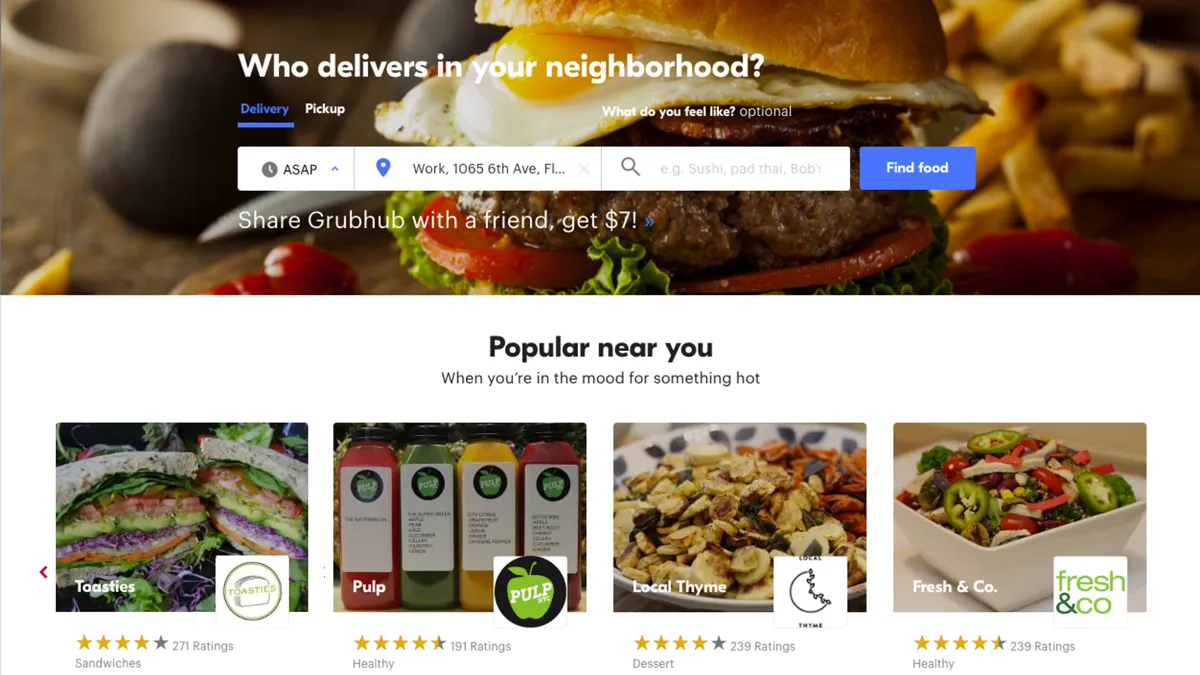Dive Brief:
- Grubhub has agreed to a $3.5 million settlement with Washington, D.C. Attorney General Karl Racine following a March lawsuit filed by Racine that alleged the company engaged in deceptive and unlawful business practices.
- Grubhub will pay $2.7 million to impacted customers. Active Grubhub customers will receive a refundable credit or a check if that credit isn’t used within 90 days. Another $800,000 will be paid as a civil penalty to the District.
- Racine alleged Grubhub charged hidden fees and used “misleading marketing tactics” that were “designed to get the company an extra buck at the expense of DC residents.”
Dive Insight:
Following this settlement and a November $125,000 agreement with Pennsylvania, Grubhub said on its website that it is providing additional clarity on its policies to all impacted parties.
“We agreed to this settlement to put this litigation behind us and continue moving our business forward,” a Grubhub spokesperson wrote in an email to Restaurant Dive. “We remain committed to providing transparency throughout the ordering process for our diners and restaurant partners.”
That clarity includes explaining that additional fees could apply to Grubhub+ members even though the program offers free delivery. That disclosure will include an explanation that the free delivery only applies to eligible orders. The company will provide a link to “fees” that explain what fees customers could be subject to. It will also stop combining taxes and fees in one line item and list the name and amount of each fee on a separate line during checkout.
Grubhub also agreed to stop charging menu prices higher than those at the restaurant unless there is a clear explanation, both on the menu and at checkout, that prices could be higher on the platform.
It also agreed to shut down any microsites it created for restaurants in the District. Grubhub previously said these sites were part of contracts signed in the past with restaurants, and that it no longer provides the service.
This latest settlement follows the office of the attorney general’s focus on ensuring gig economy companies comply with the same laws as brick-and-mortar businesses. The District previously settled a DoorDash lawsuit for $2.5 million related to an old tipping policy and has sued Instacart for including “service fees” that looked like tips for workers.










